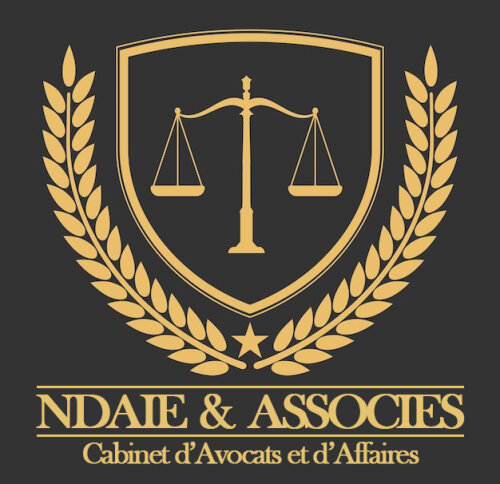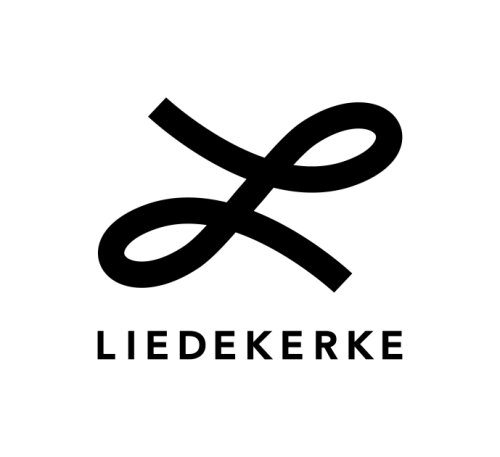Best Tax Increment Financing Lawyers in DR Congo
Share your needs with us, get contacted by law firms.
Free. Takes 2 min.
Or refine your search by selecting a city:
List of the best lawyers in DR Congo
About Tax Increment Financing Law in DR Congo
Tax Increment Financing (TIF) is an economic development tool used to encourage public and private investments in underdeveloped areas. In the Democratic Republic of Congo (DR Congo), TIF is designed to leverage future increases in property taxes to fund current improvements, such as infrastructure development and community projects. This approach aims to stimulate economic growth, attract investments, and improve living conditions in specified districts. While TIF is relatively new in DR Congo, its potential for regional development has garnered attention from both local authorities and international investors.
Why You May Need a Lawyer
Engaging a lawyer for TIF matters in DR Congo can be crucial in several scenarios, including:
- Understanding and navigating the legal framework for setting up a TIF district.
- Negotiating with governmental bodies or private investors when considering TIF projects.
- Ensuring compliance with local financial regulations and tax laws while participating in TIF projects.
- Addressing any disputes or legal challenges that arise during the execution of TIF initiatives.
- Protecting your financial interests when engaging in complex TIF agreements.
Local Laws Overview
Key aspects of local laws relevant to Tax Increment Financing in DR Congo include:
- Regulatory Framework: The legal structure surrounding TIF is influenced by both national policies and local government statutes designed to manage and regulate financial transactions.
- Approval Process: Setting up TIF districts often requires approval from regional authorities and adherence to specific criteria concerning economic impact and community benefits.
- Tax Laws: TIF initiatives must comply with DR Congo’s tax regulations. This includes understanding how property taxes are assessed and how increments are calculated and used.
- Compliance Requirements: Transparency and accountability measures are required to ensure that TIF funds are spent effectively and according to initial projections.
Frequently Asked Questions
What is the primary purpose of TIF in DR Congo?
TIF in DR Congo is intended to foster economic development and infrastructure improvements in underdeveloped areas by leveraging future property tax increases.
Who can initiate a TIF project in DR Congo?
Both governmental entities and private investors can initiate TIF projects, though they typically require approval from local authorities.
How are TIF funds used?
TIF funds are commonly used for infrastructure development, such as building new roads, schools, utilities, and other public amenities.
Are there risks associated with TIF projects?
Yes, there are risks, such as financial shortfalls if projected tax increments do not materialize, or disputes arising from project implementation.
How does TIF impact local communities?
TIF projects can benefit local communities by improving facilities and stimulating economic activity, though they may also lead to increased property values and taxes.
Is there a limit to how long a TIF district can exist?
Yes, TIF districts are generally established for a predetermined period, which varies depending on the project’s goals and local laws.
Can TIF be used in rural areas?
While TIF is typically deployed in urban settings to capitalize on significant growth potential, it can also be adapted for use in rural regions requiring development.
What role do local governments play in TIF projects?
Local governments are responsible for approving, monitoring, and regulating TIF projects to ensure they meet community and economic objectives.
How can I determine if my property is in a TIF district?
You can contact your local government or assess public records to determine if your property is located in a TIF district.
What should I do if I have a dispute related to TIF?
Seeking legal counsel is advised to navigate disputes involving TIF projects, whether they are financial, contractual, or regulatory in nature.
Additional Resources
Consider exploring the following resources if you need more information about Tax Increment Financing in DR Congo:
- Ministry of Finance of DR Congo: Provides guidelines and regulations governing TIF initiatives.
- Local Economic Development Agencies: Often provide insights and support for regional TIF projects.
- Professional Legal Associations: Offer directories of legal professionals with expertise in finance and taxation.
Next Steps
If you find yourself in need of legal assistance regarding Tax Increment Financing in DR Congo, consider the following steps:
- Consult with a legal expert specializing in financial and property law to assess your specific needs.
- Gather all relevant documentation, including project plans, financial statements, and correspondence with local authorities.
- Engage with local economic development offices for preliminary advice and support.
- Set up consultations with potential legal advisors to discuss their experience with TIF and their approach to resolving complex financial cases.
Lawzana helps you find the best lawyers and law firms in DR Congo through a curated and pre-screened list of qualified legal professionals. Our platform offers rankings and detailed profiles of attorneys and law firms, allowing you to compare based on practice areas, including Tax Increment Financing, experience, and client feedback.
Each profile includes a description of the firm's areas of practice, client reviews, team members and partners, year of establishment, spoken languages, office locations, contact information, social media presence, and any published articles or resources. Most firms on our platform speak English and are experienced in both local and international legal matters.
Get a quote from top-rated law firms in DR Congo — quickly, securely, and without unnecessary hassle.
Disclaimer:
The information provided on this page is for general informational purposes only and does not constitute legal advice. While we strive to ensure the accuracy and relevance of the content, legal information may change over time, and interpretations of the law can vary. You should always consult with a qualified legal professional for advice specific to your situation.
We disclaim all liability for actions taken or not taken based on the content of this page. If you believe any information is incorrect or outdated, please contact us, and we will review and update it where appropriate.
Browse tax increment financing law firms by city in DR Congo
Refine your search by selecting a city.















